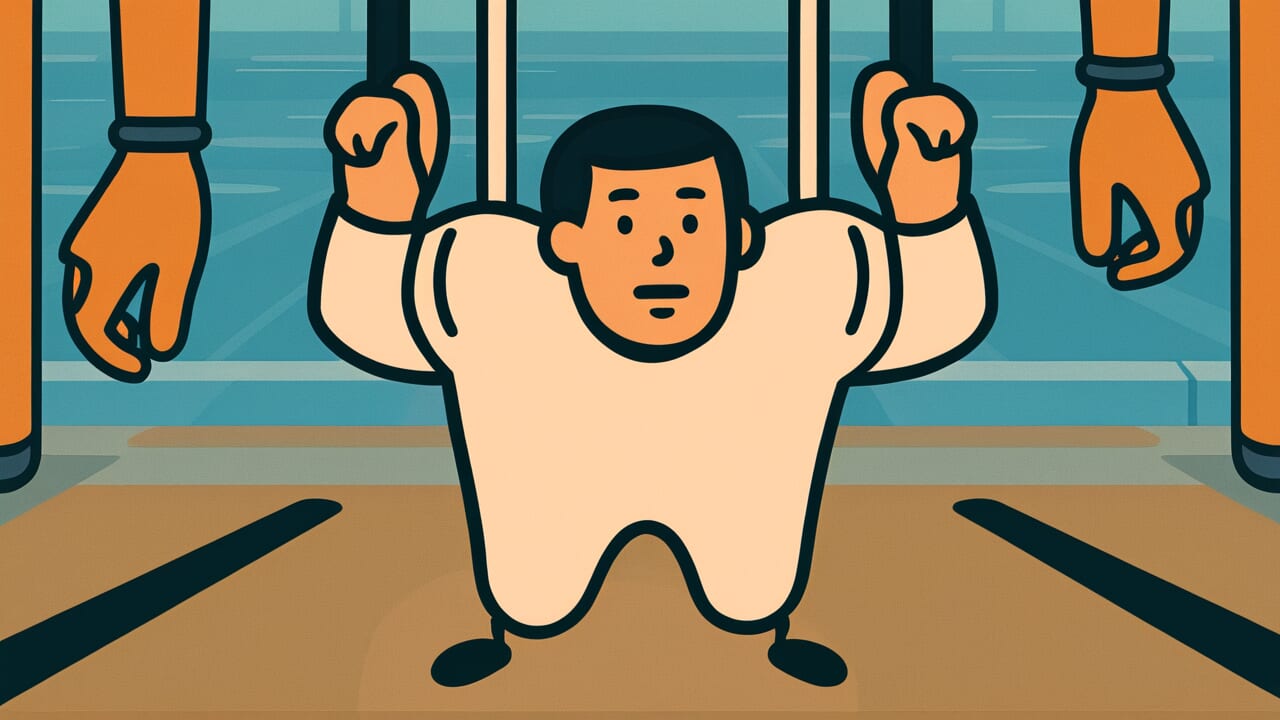How to Read “Hang the head and pierce the crotch”
Atama wo kake mata wo sasu
Meaning of “Hang the head and pierce the crotch”
This proverb describes brave action taken with life-or-death determination to defeat an enemy. The image shows someone risking their head, the most vital body part, while aiming for the opponent’s vulnerable crotch area.
This phrase is deadly serious in its resolve.
People use this expression to praise someone’s courage when facing difficult situations. It also describes actions taken without regard for personal danger.
The proverb doesn’t mean reckless behavior. It refers to actions where someone sacrifices themselves for a clear purpose.
Today, we rarely use this phrase for actual combat situations. Instead, it describes taking big risks in business or important life decisions.
The expression shows determination to abandon self-protection and face challenges with full force. It remains a powerful way to express complete commitment.
Origin and Etymology
The exact first appearance of this proverb in literature is unclear. However, the phrase structure suggests it comes from descriptions of fierce combat in ancient China.
“Hang the head” means to risk one’s life. The head is the most important part of the human body. Risking it means taking life-or-death action.
“Pierce the crotch” means aiming for the opponent’s lower body, their vulnerable spot. The crotch area was considered easy to attack and could cause fatal injury.
This expression shows a brave fighting stance. Someone exposes themselves to danger while diving toward the enemy’s weak point.
On ancient battlefields, fighters sometimes used this actual tactic. When facing a taller enemy, they would attack from a low position without fearing their head entering the opponent’s strike range.
During the era when bushido spirit was highly valued, such fearless brave action was considered the highest virtue. This proverb was born from that tradition of praising those who face enemies without regard for danger.
Usage Examples
- He challenged the new business venture with the resolve to hang the head and pierce the crotch, risking the company’s survival
- This match requires an aggressive attitude like hang the head and pierce the crotch
Universal Wisdom
The proverb “Hang the head and pierce the crotch” has been passed down because of a deep human truth. It reflects both our instinct for self-preservation and our admiration for courage that transcends it.
We humans naturally try to protect ourselves. Avoiding danger and seeking safety is normal instinct.
But humans also have a strong desire to protect things more important than themselves. For family, for companions, for beliefs, and sometimes for justice, people take actions without regard for their own lives.
This proverb shows that duality in human nature. Overcoming the strongest instinct of self-preservation to throw yourself toward a greater purpose.
People feel deep emotion witnessing such acts. That’s because it represents a level of courage everyone secretly admires but rarely achieves.
Throughout history, hero tales have fascinated people because of this universal psychology. The comfort of staying in the safe zone versus the longing for courage to leap beyond it.
This conflict may be the essence of human existence itself.
When AI Hears This
When you analyze the combat structure this proverb describes numerically, a surprising logic emerges. Assume an 80% success rate for attacks targeting the head and a 70% probability of fatal injury from crotch piercing.
Simple calculation makes the attacker’s expected value look positive. But here lurks the trap of the prisoner’s dilemma.
In game theory, situations exist where both parties acting rationally produces the worst result. Imagine two swordsmen who can each choose “full attack” or “defensive focus.”
If both choose full attack, mutual destruction gives a payoff of minus 5. If both choose defense, a draw gives 0. If only one attacks, the attacker wins with a payoff of plus 3.
In this case, regardless of the opponent’s choice, attacking seems more advantageous. This is Nash equilibrium. But if both follow this logic, the result is mutual destruction at minus 5.
What’s interesting is that this proverb functions not just as praise for bravery, but rather as a warning. Martial arts masters understood the structure of mutually assured destruction through experience.
Like modern nuclear deterrence theory, a deep strategic dilemma exists between possessing the strongest attack method and actually using it. True masters possessed the option of full attack but had the wisdom to deliberately not choose it.
Lessons for Today
This proverb teaches modern people that protecting what truly matters sometimes requires the resolve to take big risks.
Of course, daily life rarely presents situations where you literally risk your life. But life always brings moments where “you’ll regret not stepping forward now.”
Career turning points, relationships with important people, moments when you must stand by your beliefs. In such times, the temptation to stay in the safe zone is strong.
Modern society has a tendency to avoid challenges out of fear of failure. But truly valuable things cannot be obtained without taking risks.
This proverb teaches the importance of calculated courage.
What matters is not reckless gambling, but decisions made after clarifying what values you must protect. What is truly important to you?
Can you find the courage to take one step forward to protect it? Remember this question when facing important moments in life.



Comments